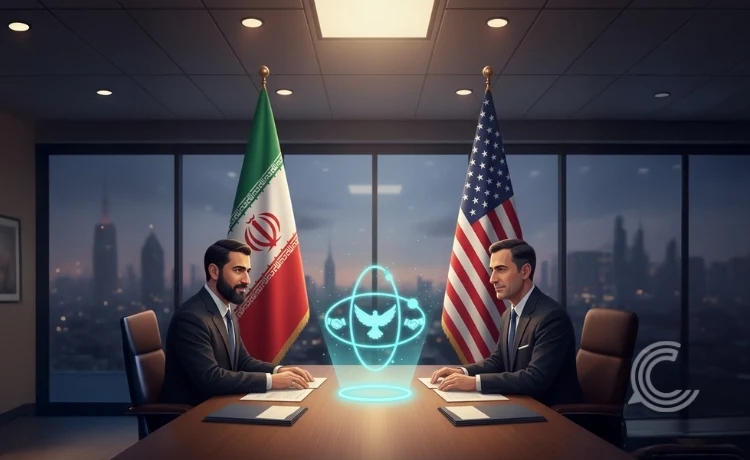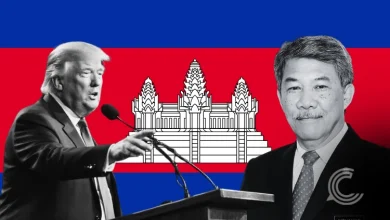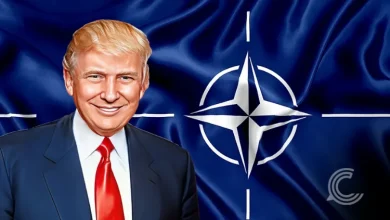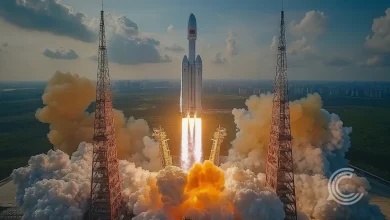Iran Seeks Peaceful US Nuclear Deal While Maintaining Security Line

Key Points:
- Iran confirms its interest in reaching a “peaceful” nuclear agreement with the United States to resolve the long-standing dispute
- Tehran maintains a firm line, stating it will not compromise its national security, which includes its right to a nuclear program for civilian purposes
- Iran’s deputy foreign minister accused the U.S. of sending confusing and contradictory messages through third countries amid stalled talks
The decades-long diplomatic standoff between Iran and the United States over Tehran’s controversial nuclear program faces renewed, albeit cautious, movement. Iran’s deputy foreign minister, Saeed Khatibzadeh, declared on Tuesday that the Islamic Republic remains keen to strike a “peaceful” nuclear agreement with Washington, an accord designed to finally resolve the deep-seated dispute.
Commitment to Diplomacy Meets Hardline Policy
Speaking at the 12th Abu Dhabi Strategic Debate, Khatibzadeh reiterated Iran’s commitment to diplomatic resolution but immediately coupled it with a non-negotiable condition: the protection of its national security. This stance signals Tehran’s determination to retain key elements of its nuclear infrastructure, which Western powers view with skepticism.
“Iran wants to reach a ‘peaceful’ nuclear agreement with the United States to resolve a decades-long dispute, but will not compromise its national security,” Khatibzadeh said, as reported by Reuters. This statement underscores the central tension in the negotiations: the global demand for verifiable limits on Iran’s nuclear activities versus the country’s assertion of its sovereign right to nuclear technology for civilian use.
The Ghost of the JCPOA and Uranium Enrichment
The current diplomatic impasse follows the termination of the 2015 Joint Comprehensive Plan of Action (JCPOA), often called the Iran nuclear deal. The JCPOA sought to limit Iran’s nuclear activities in exchange for sanctions relief. However, the U.S. withdrawal in 2018 and the subsequent escalation of tensions, including a brief conflict in June 2025, effectively rendered the pact defunct.
One of the most significant sticking points remains uranium enrichment on Iranian soil. The U.S. and its allies seek to eliminate or drastically cut Iran’s enrichment activities to minimize the potential for developing weapons-grade material. Tehran, however, rejects any such demand.
Khatibzadeh affirmed the country’s position, stating, “Tehran is not seeking nuclear bombs and… is prepared to assure the world about it.” Iran’s refusal to concede on enrichment reflects a deep-seated belief that any successful agreement must recognize its technical advancements and right to an independent nuclear fuel cycle.
Allegations of Mixed Messaging and Stalled Talks
Adding a layer of complexity to the fragile diplomatic efforts, the deputy foreign minister accused Washington of sending “contradictory messages” to Tehran through back channels. This alleged inconsistency has contributed to the stalling of formal talks since the conflict earlier this year.
“Washington was sending Tehran contradictory messages about nuclear talks through third countries,” the deputy foreign minister claimed at the debate. This claim suggests a lack of clarity in the U.S. position, complicating Iran’s ability to trust the diplomatic process.
Furthermore, Iran’s Supreme Leader, Ali Khamenei, recently weighed in on the issue. He ruled out negotiations with the U.S. while under threat, echoing a long-held policy that military and economic coercion will not force concessions. This decree places a clear restriction on the scope and timing of any potential diplomatic breakthroughs.
National Security and Military Readiness
The definition of “national security” for Iran extends beyond its nuclear infrastructure. Iranian officials, including Secretary of Iran’s Supreme National Security Council Ali Larijani, have repeatedly linked the country’s missile program to its defensive needs, firmly rejecting any external demands to limit their range or capability.
Larijani previously stated that Iran “will not retreat from its path of independence and dignity, even at the cost of full confrontation,” directly addressing Western pressure. This hardline approach on defence assets further limits the potential for a comprehensive agreement that might link nuclear and military issues.
The reality remains that while Iran is prepared to engage in diplomacy for a nuclear agreement, it is equally prepared to defend what it considers its inalienable right to advanced nuclear technology and defensive capabilities. The coming months will determine if the desire for a “peaceful” resolution can overcome the substantial national security red lines drawn by Tehran.



